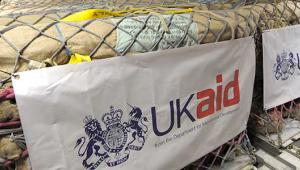The government had originally pledged to build a complex wall – made up of a series of concrete, fences, ditches and observation posts overlooked by CCTV stations - to run about 700km along the border. But the wall ended up being a 10km fence wire.
Kenya’s parliament has suspended construction of the ‘wall’ and is demanding an investigation into the project and its costs.
Speaking in parliament, some politicians this week questioned how effective a wire fence would really be at keeping militants out of the country – one of the purposes of the barrier.
Ministers originally said the idea of building a barrier on the border was to tackle illegal trafficking and immigration and to stop al-Shabab militants from Somalia crossing into Kenya.
But since the promise of a 700km barrier, only 10km fence has been built. The total cost of this was 3.4bn Kenyan shillings ($35m) – which works out at around $3m per kilometre.
This is more than double the amount of money the Kenyan government has put aside for its strategic food reserves this year, the BBC has pointed out.
It is also about a million dollars more than the government is spending on universal healthcare and three times the amount it has set aside for affordable housing.
John Mbadi, minority leader in Kenya’s National Assembly, said a physical wall was a “waste of funds”. He said: “Kenya should not be funding the construction of such a wall but investing in intelligence-gathering technology to limit attacks caused by al-Shabab.”
Parliament has now blocked any additional money to the fence and demanded the state explains why it has cost so much so far. The fence was built under the supervision of the country’s military and their accounts are classified.







